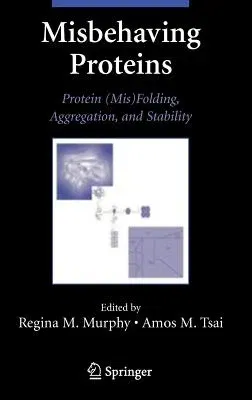Misfoldedaggregatedproteinoncewasconsideredasinterestingasyesterday'strash--a
bothersome by-product of important and productive activities, to be
disposed of and forgotten as quickly as possible. Yesterday's trash has
become today's focus of cons- erable scienti?c interest for at least two
reasons: (1) protein aggregates are at the core of a number of chronic
degenerative diseases such as Alzheimer's disease, and (2) - gregation
poses signi?cant obstacles to the manufacture of safe, ef?cacious, and
stable protein products. As interest in protein misfolding, aggregation,
and stability has soared beyond the core group of traditional
protein-folding scientists, and as substantial scienti?c progress in
understanding and controlling protein misfolding has been achieved, the
need to summarize the state of the art became manifest. Although there
are many excellent texts and edited collections on protein structure and
folding, these volumes tend to relegate protein misfolding and
aggregation to a minor role. Review articles and books focused on the
biological role of protein aggregates in diseases have been published
recently. Misbehaving Proteins: Protein (Mis)folding, Aggregation, and
Stability differs from
theseotherrecenteffortsinitsemphasisonfundamentalcomputationalandexperimental
studies and in its linkage of disparate consequences of protein
misfolding (e.g., from clinical manifestations to manufacturing
headaches) to their common causes.

